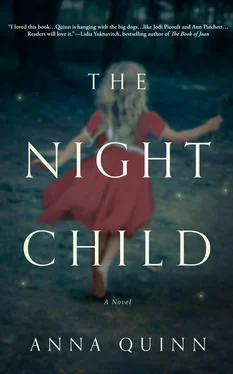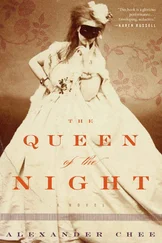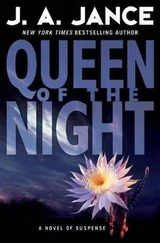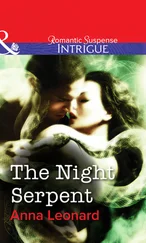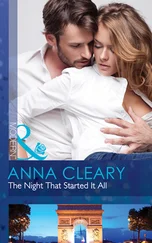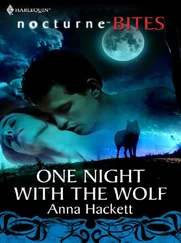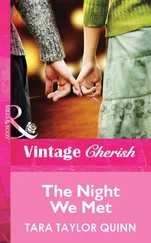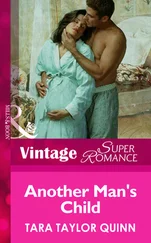She wants him to be different, to be concerned, but she knows he can’t be. He’s in the middle of a huge business deal and the anxiety and the pressure of it (and seductive thrill of it too, he loves this kind of stuff) is off the charts and he can’t let anything distract him. In the beginning of their relationship, his ambitious nature—a promise of a halcyon future, more “ Clair de Lune ” than “ Ride of the Valkyries ,” his focus and drive, attracted her, but in this moment, she wants more. Kind words. An embrace. Something. But he has already walked away from her toward the mirror across the room, picked up his comb. The salty air makes his blonde hair unruly, and it’s hard for him to smooth it.
“I saw something, Paul, an apparition or I hallucinated or I’m going crazy or something.” She hears the instability in her voice and knows she is dangerously close to crossing a line. Still, she has told him.
He turns toward her, the comb midair. He holds her gaze longer than he has in a long time. “What the hell are you talking about?”
“I saw something. A face. A girl’s face. Twice.” Nora shivers and crosses her arms tightly across her chest.
“What do you mean?” He drops the comb on the dresser and looks at her, looks worried.
A lump comes up in her throat. She presses her knees together tightly. Folds her shaking hands. “In the classroom—yesterday—right after I’d dismissed the kids, I, I …”
He runs his hands through his hair, keeps watching her. She can’t tell what he’s thinking.
“I saw a girl’s face. She had blue eyes. And she said—”
“A face spoke to you?” His eyes darken. Everything about his face tightens.
The window is still open and the waves shush in and out, in and out. Somewhere, the discordant squawk of a gull.
“Paul,” she says, realizing she is, after all, unprepared to talk about the voice, to say what she’d heard— Remember the Valentine’s dress —without sounding crazy and frightening him more, “would you take Fiona to dinner by yourself? I know, it’s Thanksgiving, it’s just that, if I rest—”
For a moment, he says nothing. Then suddenly, his face softens. “Please come with us,” he says gently. He walks over to her, takes her hands and brings her to her feet. “We came here to relax, right? We’re both really stressed, that’s all. You probably just fell asleep for a bit, had a dream.” He kisses her cheek. “Let’s stop thinking of all that, okay? I’ll order an amazing bottle of wine—we won’t talk about work. I won’t talk about work, I promise. We’ll listen to Fiona’s stories and eat and drink and come back here and sleep it off. I’ll get her ready; you don’t have to do a thing. Just wear what you have on.” He kisses her forehead. “Okay?”
She stares at her bare feet. Thinks of Fiona. “Yes, okay,” she says, her voice thin as thread.
He walks into Fiona’s room and minutes later Fiona emerges, dressed in an orange sweatshirt, jeans, and red Keds with purple laces, an outfit she’d planned especially for Thanksgiving dinner. She comes to Nora, spreads her arms wide and says, “Well, how do I look?”
“Beautiful!” Nora says. Her anxiety falls away then, and all that matters, all that she wants, is to keep that smile on Fiona’s face. “You’re springtime in November!”
“Thank you, Mommy,” Fiona says shyly, cheeks flushing pink.
“Okay, then. Let’s go! That turkey won’t eat itself!” Paul says, helping a giggling Fiona with her jacket. As they leave, Nora reaches for Fiona’s hand and whispers, “Happy Thanksgiving” into her wispy blonde hair.
“Happy Thanksgiving to you too, Mommy,” Fiona says, clutching Nora’s hand tight, and the three walk downstairs to dinner like any other family.
All eight tables in the rustic restaurant have a view of the ocean, though no one can see out because the windows are steamed up, dripping with the breath of the patrons. Everywhere, the hint of mildew and thick smell of smoke from the wood stove in the corner. Forks and knives clink on plates and voices rise and fall. Tonight there is an “All-you-can-eat Thanksgiving dinner for only $10.95!” and people are already lined up at the buffet: a young woman with a baby in a stroller, a stooped-over man holding the elbow of an elderly woman (they are wearing matching dark-green flannel shirts) who is using a walker, a young couple touching and kissing each other, everyone talking and laughing. A huge ginger cat slips between the tables, and Neil Diamond blares from the stereo. Fiona bounces with energy—a sense of camaraderie in the air. Nora is glad she came.
A waitress in her seventies with wide hips and mostly gray hair pulled tight into a ponytail with turquoise dolphins dangling from her ears escorts them to their table.
“You’re gonna want to get in line ASAP,” she says. “Last year we ran out of gravy before sunset.”
Paul orders “ the best Chardonnay you have ,” and they head for the line holding their big white dinner plates. There is a ten-foot long salad bar loaded with greens and toppings and also, because of the occasion, mashed potatoes, gravy, stuffing, cranberry sauce, and triangles of pumpkin pie with a plop of whipped cream on top. At the end of the salad bar a huge galvanized iron pot sits, steaming with clam chowder. A large sweaty man in a white chef’s jacket stands next to the pot and slices up a gigantic roasted turkey and shouts, “Happy Thanksgiving!” every five minutes or so. Paul, Nora, and Fiona load up their plates and make their way back to the table.
Once they are seated, Paul pours the wine, flashes Nora an I-told-you-so smile, and they clink glasses. The cool stream of wine floats down her throat, and soon the face with the blue eyes is only a vague lingering under her ribs.
CHAPTER THREE: December 14, 1996
Nora hadn’t been able to get the face or the voice or the ache out of her head, so she’d made an appointment with her doctor. When he couldn’t find anything wrong, he referred her to a neurologist who ran test after test and ruled out narcolepsy, epilepsy and Parkinson’s, hemorrhages and seizures, family history, and cultural isolation.
“Cultural isolation?” Her nose wrinkled up. “But I’m a teacher.”
He’d only looked at her suspiciously and asked her if she took amphetamines, marijuana, cocaine, LSD, PCP? And when she glared at him with an icy quiet, he just shrugged and said hallucinations aren’t well understood and maybe she should see a psychiatrist. She’d bitten her lip. He shrugged again and said, “Emotional trauma can activate a hallucinatory region of the brain, trigger an event.”
“A region? An event?” Her head began to spin, picturing wild fiestas in Spain and family reunions where everyone wears matching T-shirts—the family name emblazoned across the front.
Now, Nora sits in the psychiatrist’s office, perched on an overstuffed, green tweed couch. Dr. David Forrester sits opposite her on a chair that matches the couch. He is reviewing her medical history form, and she is impatient for him to finish reading. She doesn’t like the smell of this room—lavender air freshener disguising grief, invisible clouds of uncertainty lingering and descending on those who sit here, infiltrating their heads and lips and words. A tiny clock ticks loudly on the file cabinet next to her. It faces away from her, purposefully placed, she thinks, so she won’t feel the pressure of time. The doctor doesn’t know it is the ticking, the ticking, the ticking in this enormous silence that creates the most pressure for her. She suddenly feels trapped and misplaced. Nearby, a ferry horn blares, and she jumps.
Читать дальше
